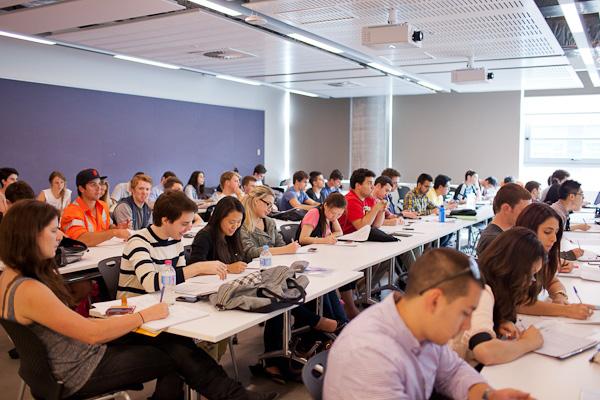
A class in Building 6
|
Lecturer: Faculty: Project: Keywords: |
Associate Professor Tony George is assessing the value of MCQs (Multiple Choice Questions) beyond formal examinations, gauging students' learning in real-time. What the project is aboutUsing trial quizzes in Canvas for students to assess their progress and learning of a subject’s content is a popular practice. Associate Professor George is adapting this model and bringing the trial quiz directly into the lecture. He limits the questions to the material just covered in that session to construct a real-time interactive learning experience.
Throughout this project, Associate Professor George is intending to:
Why the project is being introducedMCQs are seen by some as a simplistic and superficial assessment method that brings too much guesswork and the element of chance into the examination process. However this project is enabling students to instantly reflect on what they’ve learned during the lecture, get feedback, and use the online MCQs as a revision tool at home. How the project is being implementedAssociate Professor George is evaluating the effectiveness of MCQs through the following steps:
a) Attending two lecture sessions as an observer of the lecture content, delivery and student attentiveness. Challenges and considerationsAssociate Professor George used comments about MCQs taken from from the 2012 student questionnaire to inform this project.
Positive comments included:
Exploring further
Delving even deeper |
|

